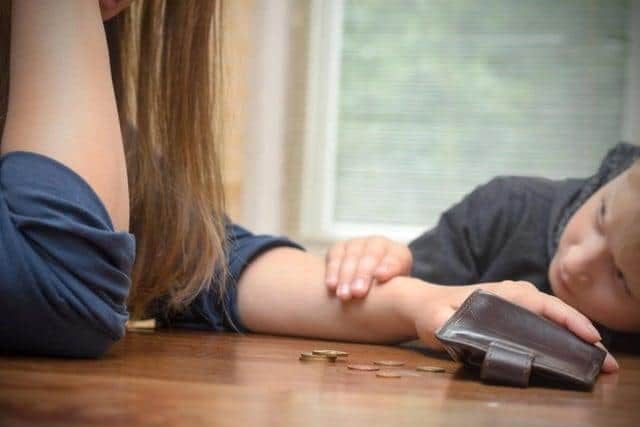Renters on universal credit in Northampton now owe THREE TIMES as much in rent debt as people on standard housing benefits
and live on Freeview channel 276
Two-thirds of people on universal credit in Northampton who rent from the council owe money in rent arrears - and on average owe three as much as those still on the old housing benefits system.
The scale of debt problems felt by residents who rent from the council or Northampton Partnership Homes under universal credit (UC) has more than double in just eight months.
Advertisement
Hide AdAdvertisement
Hide AdIn June last year, the Chronicle and Echo revealed how 551 UC claimants were saddled with rent arrears, worth a total of some £288,500.


But a freedom of information request by a member of the public has now shown that that number has ballooned to 1,186 in just eight months - and the total debt could be as much as £670,000.
In fact, two-thirds of all people in the town renting with UC are in debt for unpaid rent - and on average owe £565 each.
This compares to how just one-in-five people on the old housing benefit system are in debt, and only for around £199 on average.
Advertisement
Hide AdAdvertisement
Hide AdEven people who are on no housing benefit at all are faring better than UC, with around four-out-of-ten people in debt for rent arrears and for £300 on average.


It means, just one year after the all-in-one benefit was rolled out, more people on UC in Northampton are in debt than ever, and for more money.
Robin Burgess, director of homelessness and poverty support charity The Hope Centre, says the figures who why the system needs a "complete review".
He said: "In a nutshell, the scale of Universal Credit related rent arrears is a simple and direct testimony to the problems universal credit is creating and why it needs complete review: it is causative of misery and homelessness.
Advertisement
Hide AdAdvertisement
Hide Ad"A lot of these arrears arise at the start of moving over to universal credit because of the waiting period until the benefit is paid, but then people aren’t able to pay them off, so they sit there as a debt.
"If the tenancy then breaks down, they face a struggle to be rehoused, because they have this history, which means their risk of homelessness is greater. In addition the worry about the debt can cause mental health or addiction problems which further cause risk of homelessness."
Overall, one-in-three people who rent from the council or NPH are in debt for rent arrears.
It paints a far worse picture than first revealed by the Chron in June last year, when housing charity Shelter called on the goverment to scrap UC.
Advertisement
Hide AdAdvertisement
Hide AdClaimants will only transfer onto the new system from traditional housing benefits once they have had a change in their personal circumstances – which in some cases can be moving home or the death of a partner.
Peter Haytack, head of income and leasehold services at NPH said: "We aim to contact all tenants as soon as they have made an application for help with housing costs through Universal Credit. We encourage tenants to speak to us to discuss the options available to assist them during the transition period.
"We can offer some advice on benefits and money management, but if a tenant needs specialist debt or money advice, we refer them to our local partners.
"The systems and procedures we have in place mean we keep track of arrears levels closely, and we are in regular contact with all customers who have rent arrears.
Advertisement
Hide AdAdvertisement
Hide Ad"Although enforcement action is sometimes necessary, our aim is to support tenants and sustain tenancies where possible, so we encourage those who are having difficulties paying their rent to work with us."
The housing proportion of Universal Credit is now not enough to cover the rent in 97 per cent of modest two-bed houses, Shelter says.
Since it was rolled out last year, charities and politicians have criticised UC for pushing households towards greater debt, poverty and even homelessness.